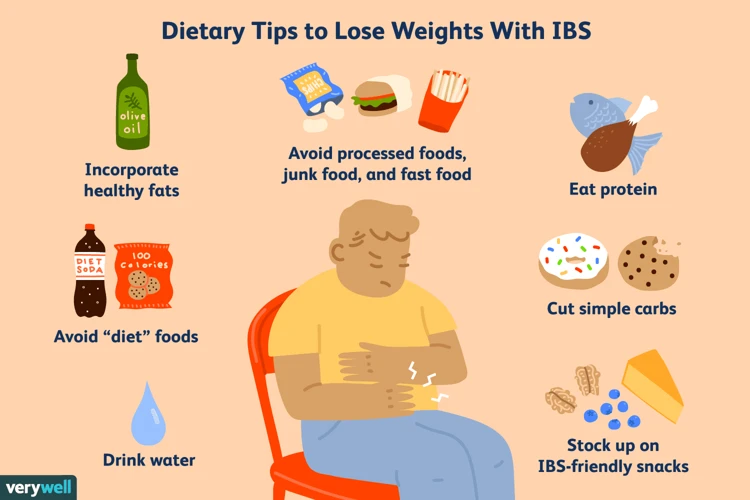Walking into a grocery store can be overwhelming, especially when you want to avoid processed foods. With so many options on the shelves, it’s hard to know where to start. You may have heard that processed foods are bad for your health, but why exactly is that? And how can you avoid them while grocery shopping? In this article, we will explore the risks of consuming processed foods, the benefits of avoiding them, and provide you with a step-by-step guide on how to shop for whole foods. By the end, you’ll have the knowledge and tools to make healthier choices for you and your family.
Why Avoid Processed Foods?
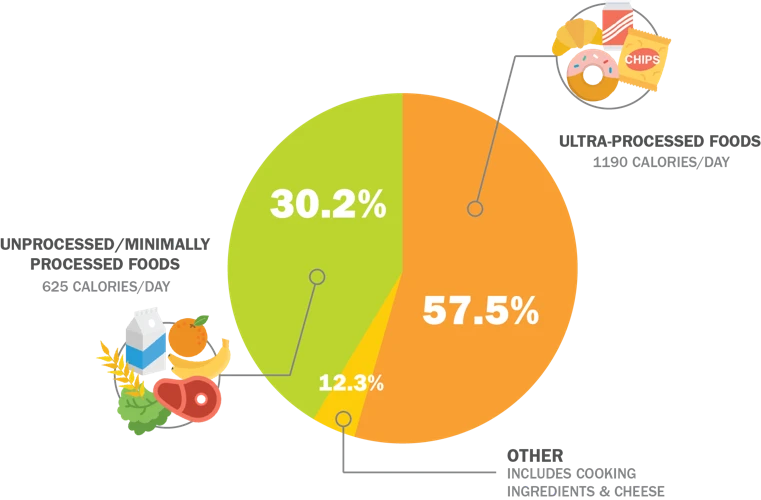
While grocery shopping, it can be tempting to grab pre-packaged meals or snacks for convenience. However, many of these convenience items are highly processed and can have negative effects on our health. As consumers become more aware of the risks associated with consuming processed foods, it’s important to understand why avoiding them is crucial for our well-being. Let’s explore the potential risks and benefits of choosing whole, unprocessed foods.
Risks of Consuming Processed Foods
Consuming processed foods can pose a variety of risks to our health, both in the short term and long term. Here are some of the key risks associated with a diet high in processed foods:
| Increased risk of obesity: Processed foods are often high in calories, sugar and unhealthy fats, which can all contribute to weight gain and obesity. |
| Higher risk of heart disease: Processed foods are often loaded with sodium, which can lead to high blood pressure and an increased risk of heart disease. |
| Elevated risk of cancer: Processed foods can contain artificial preservatives and additives, some of which have been linked to an increased risk of cancer. |
| Increased risk of diabetes: Processed foods are often high in refined carbohydrates, which can cause a rapid spike in blood sugar levels and an increased risk of developing type 2 diabetes. |
| Worsening mental health: Certain preservatives and additives in processed foods have been linked to worsened mood and increased risk of depression and anxiety. |
| Nutrient deficiencies: Processed foods are often lacking in important nutrients like fiber, vitamins and minerals, which are crucial for overall health and wellbeing. |
It is clear that the risks associated with consuming processed foods are numerous and significant. By avoiding processed foods as much as possible and opting for whole, nutrient-dense foods instead, we can protect our health and reduce our risk of these negative health outcomes.
Benefits of Avoiding Processed Foods
Choosing to avoid processed foods while grocery shopping comes with a variety of benefits for our health and overall well-being. Here are some of the key advantages to keep in mind when planning your next grocery trip:
- Improved Nutritional Content: Whole foods are often naturally rich in vitamins, minerals, and other important nutrients that our bodies need to function properly. Processed foods, on the other hand, are often stripped of these beneficial components during production in order to increase shelf life and improve taste. By avoiding processed foods and opting for whole foods instead, we are ensuring that our bodies are receiving the vitamins and minerals they need to function at their best.
- Reduced Risk of Chronic Disease: Studies have shown that consumption of processed foods has been linked to an increased risk of chronic diseases such as heart disease, diabetes, and obesity. By choosing to avoid these foods, we can significantly reduce our risk of developing such ailments and maintain a healthier and more active lifestyle.
- Better Digestive Health: Processed foods are often high in unhealthy additives and preservatives that can negatively impact our digestive health. By opting for whole foods instead, we are providing our bodies with the fiber and other healthy components they need to promote regular bowel movements and overall digestive health.
- Enhanced Energy Levels: Many processed foods are high in added sugars and artificial sweeteners that can cause rapid spikes and dips in blood sugar levels, leaving us feeling sluggish and fatigued. On the other hand, whole foods like fresh fruits and vegetables, lean proteins, and healthy fats provide a sustained source of energy to keep us feeling alert and active throughout the day.
By taking the time to carefully consider the many benefits of avoiding processed foods and making conscious decisions during our grocery shopping trips, we can make a significant impact on our health and overall sense of well-being.
Plan Ahead
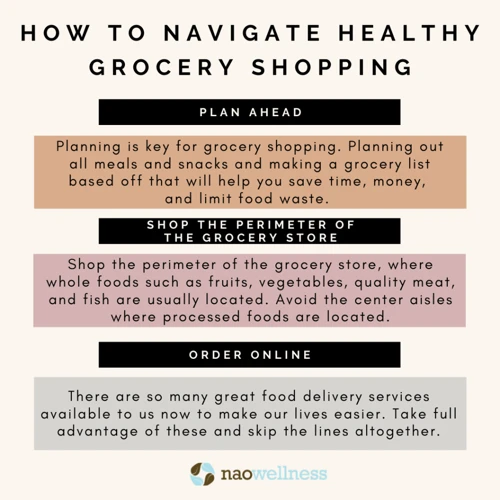
Planning ahead is a crucial step in avoiding processed foods while grocery shopping. This means taking some time to make a shopping list and meal plan before heading to the store. By doing this, you can be sure you are purchasing only the necessary items and avoiding impulse buys of processed foods.
One way to plan ahead is to take inventory of what you already have in your pantry and fridge. This will help you avoid buying duplicate items or allowing food to go to waste. Additionally, meal planning for the week can help you stay organized and reduce the likelihood of grabbing fast food or convenience foods when you’re short on time.
Another tip for planning ahead is to choose a shopping day and time that works for you. Plan to go when the store is less busy, to avoid feeling rushed or overwhelmed. This can help you stay focused on your list and avoid temptation to buy processed foods you don’t need.
You can also use online resources to help with meal planning and grocery shopping. Websites and apps can provide healthy recipe ideas and even generate grocery lists based on your selections. This can save time and help ensure you are purchasing whole, unprocessed foods.
Planning ahead is an essential step in avoiding processed foods and making healthier choices at the grocery store. Taking a little time to plan can help you stay on track and feel confident in your food choices.
Shop the Perimeter

When it comes to grocery shopping, one simple rule of thumb to avoid processed foods is to stick to the perimeter of the store. This is where you will find the fresh, whole foods that are the foundation of a healthy diet. By focusing on the fresh ingredients found in the fruits and vegetables, meat and poultry, seafood, and dairy products sections around the edges of the store, you can easily avoid the heavily processed and packaged foods found in the center aisles. Let’s take a closer look at how to navigate the perimeter of the grocery store for a healthier shopping experience.
Fruits and Vegetables
When grocery shopping to avoid processed foods, one of the best sections to stock up on is the produce department. Here’s how to select the best fruits and vegetables.
| Tip | Description |
|---|---|
| Look for variety | Choose a colorful mix of fruits and vegetables to ensure a range of nutrients in your diet. |
| Opt for fresh | Opt for fresh produce that is in season for the best flavor and nutritional value. |
| Read labels | Make sure to read labels on packaged produce, such as pre-cut fruit or bagged salads, for any added preservatives or chemicals. |
| Buy organic when possible | Choose organic produce to avoid pesticides and other harmful chemicals. |
| Buy frozen | If fresh produce is not available or is too expensive, opt for frozen produce without added sauces or seasonings. |
| Avoid canned | Avoid canned fruits and vegetables, as they are often loaded with added sugars and salt. |
By selecting a variety of fresh, organic, and in-season fruits and vegetables, you can ensure that your diet is full of essential nutrients and free of harmful additives.
Meat and Poultry
When it comes to shopping for meat and poultry, opting for unprocessed, fresh options is crucial for a healthy and nutritious diet. Here are some tips to follow:
- Look for grass-fed and free-range options when choosing beef or poultry. These animals have been allowed to graze and roam freely, resulting in higher nutrient levels in their meat.
- Avoid pre-made, processed meats such as sausages, hot dogs, and deli meats. These are often loaded with preservatives, sodium, and unhealthy fats.
- Purchase skinless varieties of poultry to reduce the fat content.
- Opt for lean cuts of meat, such as sirloin or round steak, and remove any visible fat before cooking.
- Consider buying frozen meats if you won’t be consuming them right away. This can help prevent spoilage and waste.
Keeping these tips in mind can help you choose high-quality, unprocessed meat and poultry options that provide essential nutrients for a healthy lifestyle.
Seafood
When it comes to seafood, it’s important to choose fresh, whole options over processed or pre-packaged products. Here are some tips for selecting the best seafood options at the grocery store:
| Seafood | What to look for | What to avoid |
|---|---|---|
| Salmon | Look for wild-caught salmon, which is usually fresher and free of antibiotics and hormones. | Avoid farm-raised salmon, which can contain higher levels of toxins and be treated with antibiotics and hormones. |
| Tuna | Choose chunk light tuna, which is lower in mercury and more sustainable than albacore tuna. | Avoid canned tuna labeled as “white” or “solid white,” which is typically albacore tuna and can contain higher levels of mercury. |
| Shrimp | Choose fresh or frozen shrimp that is labeled as sustainably sourced or wild-caught. | Avoid shrimp that is labeled as farm-raised or treated with antibiotics. |
| Cod | Look for fresh or frozen cod that is labeled as wild-caught. | Avoid cod that is labeled as farm-raised or treated with antibiotics. |
| Scallops | Choose fresh or frozen scallops that are labeled as diver-caught or wild-caught. | Avoid scallops that are labeled as farm-raised or treated with preservatives. |
By selecting fresh, sustainably sourced seafood, you can avoid the preservatives and additives often found in processed options. Plus, you’ll be supporting more ethical and environmentally friendly practices in the fishing industry.
Dairy Products
When it comes to dairy products, it’s important to choose options that are as close to their natural state as possible. Here are some things to keep in mind while grocery shopping:
| Choose: | Avoid: |
|---|---|
| Whole milk | Flavored milk with added sugars |
| Plain yogurt | Flavored yogurt with added sugars |
| Unprocessed cheese | Processed cheese with added chemicals and preservatives |
| Butter | Margarine with added trans fats |
Whole milk and plain yogurt are good options to choose because they don’t have added sugars. Flavored milk and yogurt with added sugars should be avoided because it can contribute to high blood sugar levels and added calories.
Unprocessed cheese is also a better option because it doesn’t contain added chemicals and preservatives like processed cheese does. Butter is another good choice, instead of margarine which can have added trans fats.
By choosing whole and unprocessed dairy products, you can avoid unnecessary additives and preservatives and consume products in their natural state.
Read Labels Carefully

When it comes to avoiding processed foods while grocery shopping, reading labels carefully is a crucial step. Many processed foods contain hidden additives, preservatives, and artificial ingredients that can be harmful to our health. However, not all processed foods are created equal, and some can be more nutritious than others. That’s why it’s important to read labels carefully and understand what you’re putting into your body.
Firstly, start by checking the ingredient list. Ingredients are listed in descending order by weight, so the first ingredients are the most abundant. If sugar, high fructose corn syrup or any artificial ingredients are among the first three ingredients, it’s best to avoid that food. Also, look for whole food-based ingredients like whole grains, fruits and vegetables.
Secondly, pay attention to serving sizes. Many processed foods may seem healthy when looking at the calories and macro-nutrients per serving, but the serving size may be much smaller than what you would normally consume. This can be a sneaky way for manufacturers to make their products seem healthier than they really are. So always check the serving size and adjust the nutritional information accordingly.
Thirdly, be wary of misleading claims on packaging. Phrases like “all-natural” or “organic” may not mean what you think they do, as these terms aren’t always clearly defined by the FDA. Likewise, some foods may claim to be “low-fat” or “low-sugar,” but this may just mean that they contain more artificial ingredients to compensate for the lack of flavor.
Fourthly, look for foods with a short ingredient list. Generally speaking, the fewer ingredients on the label, the better. This is because foods with a long list of ingredients are more likely to contain additives and preservatives.
Fifthly, be cautious of foods labelled as “fat-free” or “diet.” These products are often highly processed and contain artificial sweeteners, which can be harmful to your health. Instead, choose whole, unprocessed foods that contain healthy fats, fiber, and other important nutrients.
Learning to read labels carefully is an important step in avoiding processed foods while grocery shopping. By being mindful of the ingredients and nutritional information, you can make informed choices about the foods you consume and take control of your health.
Avoid Sugar and Artificial Ingredients
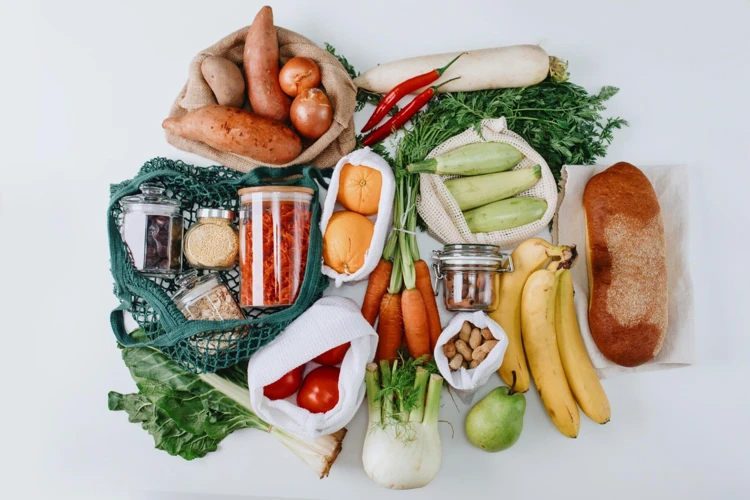
When it comes to avoiding processed foods while grocery shopping, one key area to pay attention to is the amount of sugar and artificial ingredients present in the products you’re considering. This is because many processed foods are loaded with added sugars and artificial ingredients that can be harmful to your health.
Sugar: While sugar may taste delicious and provide a temporary energy boost, consuming too much sugar can have a negative impact on your health. Excess sugar intake has been linked to a number of health problems, including obesity, heart disease, and type 2 diabetes. When grocery shopping, make sure to read the nutrition labels on any packaged foods you’re considering to check for added sugars. Keep in mind that sugar can also be listed under other names, such as “high-fructose corn syrup” or “glucose”.
Artificial ingredients: Many processed foods also contain artificial ingredients, such as artificial flavors, colors, and preservatives. While these ingredients may make food products look and taste better, they can also have negative effects on your health. Some artificial ingredients have been linked to health problems such as allergic reactions, hyperactivity, and even cancer. When grocery shopping, be sure to read the ingredient list on any packaged foods you’re considering to check for artificial ingredients. Instead of choosing processed foods that contain these harmful additives, opt for whole foods that are free from these artificial ingredients.
By avoiding sugar and artificial ingredients in your grocery shopping, you can help protect your health and reduce your risk of developing a variety of health problems. So, make it a priority to read nutrition labels and ingredient lists, and choose whole foods over processed options whenever possible.
Choose Whole Foods
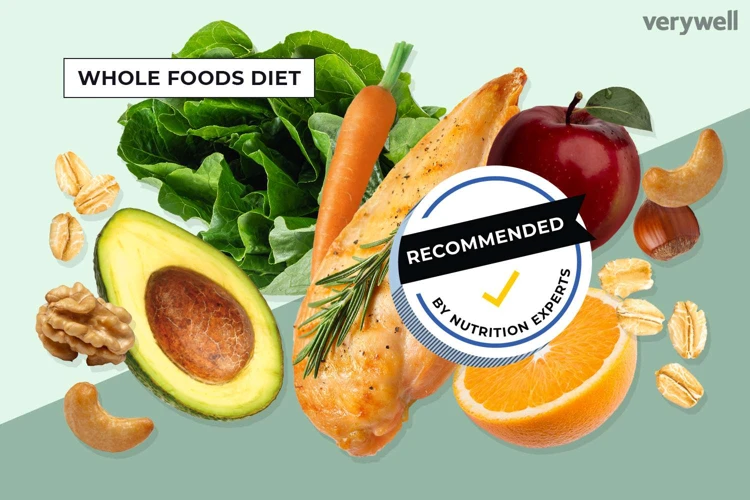
When it comes to grocery shopping, making healthy choices can be a daunting task, especially with the vast array of processed foods lining the shelves. It’s important to focus on selecting whole foods that offer a wealth of nutrients and health benefits. By choosing foods that are minimally processed and free from artificial additives and preservatives, you can support your overall health and well-being. In this section, we’ll explore some tips for selecting whole foods that are both delicious and nutritious.
Whole Grains
When looking for whole grains, it’s important to read labels carefully to ensure you’re getting the real thing. Stick to items that list “100% whole grain” as the first ingredient. Avoid items that are labeled “multigrain” or “wheat,” as these may not actually contain whole grains. Here are some great whole grain options to look for:
- Brown rice: This is a great alternative to white rice and is loaded with fiber and nutrients. Try swapping out white rice in your meals for brown rice instead.
- Quinoa: This grain is high in protein and fiber, making it a great option for vegetarians and vegans. It can also be used in a variety of dishes, from salads to stir-fries.
- Whole wheat pasta: Instead of traditional white pasta, opt for whole wheat pasta for added fiber and nutrients. Try mixing it with roasted vegetables for a simple and healthy meal.
- Barley: This grain is great for soups and stews and is also high in fiber. It has a nutty flavor and adds a great texture to any dish.
- Buckwheat: Despite its name, buckwheat is actually a fruit seed related to rhubarb. It’s gluten-free and high in protein and fiber. Try making a hearty breakfast bowl with buckwheat, eggs, and veggies.
Incorporating whole grains into your diet is an easy way to boost the nutritional value of your meals. By choosing whole grain options instead of processed grains, you’ll feel fuller for longer and avoid the blood sugar crashes that come with refined carbohydrates.
Fresh Produce
When it comes to avoiding processed foods while grocery shopping, fresh produce should definitely be on your list. By incorporating more fruits and vegetables into your diet, you’ll not only be avoiding the harmful effects of processed foods, but you’ll also be supplying your body with essential vitamins, minerals, and fiber.
Here are some tips for selecting fresh produce:
- Choose a variety of colors: Different colors of fruits and vegetables often indicate different nutrients, so it’s important to include a range of hues in your cart. For example, red and orange produce is often high in vitamin C, while leafy greens are packed with iron and calcium.
- Look for seasonal options: Not only are seasonal fruits and vegetables often cheaper, but they’re also more likely to be fresher and tastier. Check your farmer’s market or local grocery store for options that are in season.
- Inspect for freshness: Check for signs of spoilage, such as brown spots or wilting. You can also give produce a gentle squeeze or smell test to determine if it’s fresh.
- Consider organic options: If possible, choose organic produce to avoid exposure to harmful pesticides and chemicals.
- Buy in bulk: Buying in bulk can save you money, especially when it comes to produce that has a longer shelf life, such as apples or potatoes.
By incorporating a variety of fresh produce in your diet and following these tips, you’ll be on your way to a healthier and more nutrient-dense lifestyle.
Lean Proteins
When it comes to protein, it’s best to choose lean options. These are protein sources that contain low levels of saturated and trans fats, making them heart-healthy choices. Here are some great options for incorporating lean protein into your diet:
- Skinless chicken breast: Chicken breast is an excellent source of lean protein, with around 31 grams of protein and only 2 grams of saturated fat per 4-ounce serving.
- Turkey breast: Turkey is another great choice for lean protein, with around 30 grams of protein and just 1 gram of saturated fat per 4-ounce serving. Look for ground turkey breast, which can be a healthy alternative to ground beef in recipes like meatballs or burgers.
- White fish: Examples of white fish include cod, haddock, and tilapia. They are high in protein and low in calories, with around 20-25 grams of protein per 4-ounce serving. These fish are also a good source of omega-3 fatty acids, which are important for heart health.
- Salmon: Salmon is another fish that is high in protein and omega-3s. It contains around 22 grams of protein and 7 grams of healthy fats per 4-ounce serving. Try grilling, baking, or broiling it for a tasty and healthy meal.
- Plant-based proteins: If you are vegetarian, vegan, or just looking to reduce your meat consumption, there are plenty of plant-based options for lean protein. Examples include tofu, tempeh, quinoa, lentils, and beans. These foods are not only high in protein but also fiber, which can aid in weight management and digestion.
Incorporating lean protein into your diet is important for maintaining muscle mass, promoting satiety, and overall health. However, remember that portion sizes also matter. Stick to the recommended serving sizes and balance your protein intake with whole grains, fruits, and vegetables for a well-rounded and nutritious diet.
Healthy Fats
When it comes to choosing healthy fats while grocery shopping, there are several options to consider. Adding these fats to your diet can provide health benefits such as improved heart health and brain function. Here are some healthy fat options to add to your grocery list:
- Avocado: Avocados are a great source of monounsaturated fats, which can help lower bad cholesterol levels in the body. They are also rich in fiber, potassium, and vitamins C and K.
- Nuts and Seeds: Nuts and seeds such as almonds, walnuts, chia seeds, and flaxseeds are high in healthy fats and other nutrients such as protein, fiber, and minerals. They can be a great snack option or added to dishes such as salads or smoothies.
- Olive Oil: Olive oil contains monounsaturated fats that may help reduce the risk of heart disease. It is also rich in antioxidants and has anti-inflammatory properties. Use it for cooking or as a dressing for salads or vegetables.
- Fatty Fish: Fish such as salmon, tuna, and mackerel are great sources of omega-3 fatty acids, which can improve heart health and brain function. They are also a good source of protein and other nutrients such as vitamin D.
- Coconut Oil: Coconut oil is high in saturated fat, but it’s a unique type of saturated fat called medium-chain triglycerides, which can be quickly converted into energy in the body. It may also help improve cholesterol levels and promote weight loss.
- Dark Chocolate: Dark chocolate contains healthy fats called monounsaturated and polyunsaturated fats, which can help improve heart health. It is also rich in antioxidants and may help improve brain function.
Incorporating these healthy fats into your diet can be beneficial for your overall health. Mix and match these options to add variety to your diet and enjoy the delicious flavors they provide.
Beware of Hidden Processed Foods
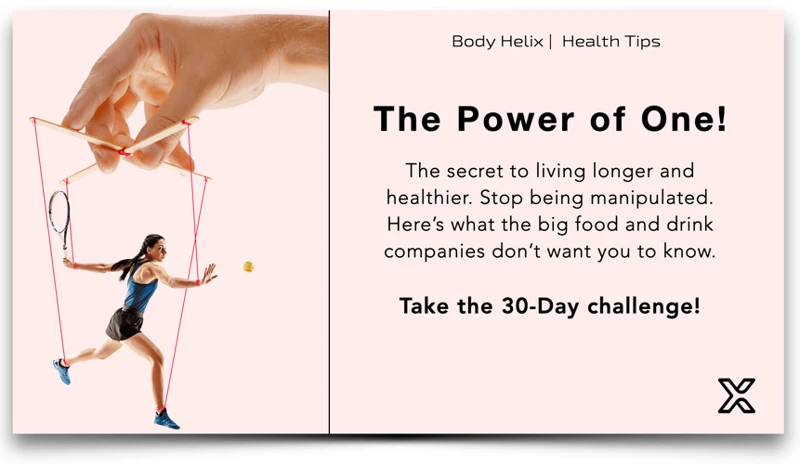
When trying to avoid processed foods, it’s easy to fall into the trap of thinking that just because a food item is not overly processed or found in the middle of the grocery store, it must be healthy. However, this is not always the case. Many seemingly healthy foods can still contain hidden processed ingredients that can have negative effects on your health. It’s important to be vigilant and read labels carefully to avoid these hidden culprits. Let’s take a closer look at some of the common sources of hidden processed foods at the grocery store.
Condiments and Sauces
When it comes to avoiding processed foods while grocery shopping, it’s important not to overlook the condiments and sauces aisle. These seemingly innocent additions to meals can often be full of added sugars, artificial ingredients, and preservatives.
Condiments: These are the toppings you add to your meal, such as ketchup, mustard, mayo, and salad dressing. It’s important to read the labels on these products and look for options that have minimal ingredients and no added sugars. You can also try making your own condiments at home, using healthier ingredients like olive oil or Greek yogurt as a base.
Sauces: These are liquid or semi-liquid toppings that are served with or on top of the food. Examples include soy sauce, barbecue sauce, and pasta sauce. Similar to condiments, it’s crucial to read the labels and choose options with real ingredients and no added sugars. You can also consider making your own sauces at home, using fresh herbs and spices for added flavor.
Here is a table of some common condiments and sauces to look out for at the grocery store:
| Product | Unhealthy Ingredients to Avoid | Healthier Alternatives |
|---|---|---|
| Ketchup | High fructose corn syrup, artificial flavors | Ketchup made with real tomatoes, no added sugars |
| Mayonnaise | Trans fats, preservatives | Mayonnaise made with real ingredients, such as avocado oil or Greek yogurt |
| Barbecue Sauce | High fructose corn syrup, artificial colors and flavors | Barbecue sauce made with real ingredients, such as tomato paste and honey |
| Soy Sauce | Added sugars, preservatives | Soy sauce made with soybeans, wheat, and no added sugars |
| Pasta Sauce | Added sugars, artificial flavors and preservatives | Pasta sauce made with real tomatoes, olive oil, and fresh herbs |
By being mindful of the condiments and sauces you choose at the grocery store, you can avoid unnecessary added sugars and artificial ingredients in your diet. Making your own condiments and sauces at home is also a great way to control the ingredients and flavors you consume.
Snack Foods
When it comes to avoiding processed foods while grocery shopping, it’s essential to pay attention to snack foods. These are easy to grab, and they can be quite tempting, even for people who are trying to steer clear of processed options. Snack foods are often very high in salt, sugar, and unhealthy fats, and these ingredients can increase your risk of health problems like obesity, high blood pressure, and heart disease.
To make sure you choose healthy snack options, read the labels carefully and look for whole food ingredients. Some of the best options include fresh fruits and vegetables, whole grain crackers, and nuts. These snacks will provide you with the energy you need to get through your day without weighing you down with processed ingredients.
When choosing snack foods, it’s also essential to be mindful of portion sizes. Avoid buying bags of chips or other snack foods that encourage you to eat more than you should. Instead, opt for snack packs or single-serving options, which will help you keep your portions under control.
Here’s a table summarizing the best and worst options when it comes to snack foods:
| Healthy Snack Options | Unhealthy Snack Options |
| Fresh fruit or vegetables | Candy or other sugar-laden treats |
| Whole-grain crackers or rice cakes | Chips or other fried snack foods |
| Nuts or seeds | Processed cheese or cheese-flavored snacks |
| Plain popcorn | Pre-packaged cookies or cakes |
| Rice cakes or unsalted pretzels | Processed meat products like jerky or sausages |
By choosing healthy snack options, you’ll feel better, have more energy, and reduce your risk of health problems. Keep these tips in mind the next time you’re shopping for snacks, and you’ll be able to make more informed decisions about what you’re eating.
Beverages
When it comes to avoiding processed foods while grocery shopping, it’s important to be mindful of the beverages you select. Many drinks on the market are laden with added sugars and artificial ingredients, which can have negative impacts on overall health. To make healthier choices, consider the following:
| Beverage | Issues to Consider | Healthy Alternatives |
|---|---|---|
| Soda and Sweetened Soft Drinks | These beverages are loaded with sugar and often contain chemicals and artificial sweeteners as well. | Instead of reaching for a sugary soda, try quenching your thirst with water or herbal tea. Infused water with fresh fruits or herbs can add a nice flavor and a little variety. |
| Bottled Juice and Juice Drinks | Many fruit juices are high in added sugars and low in fiber, vitamins, and minerals. | Look for 100% fruit juice with no added sweeteners or preservatives. Even better, opt for fresh fruit and make your own juice at home. |
| Sports Drinks and Flavored Waters | These drinks may contain electrolytes and vitamins, but often also contain large amounts of sugar or artificial sweeteners. | If you need the electrolytes, consider coconut water or natural electrolyte tablets. For flavored water, try infusing your own sparkling water with fresh fruit and herbs. |
| Coffee and Tea | Adding cream, sugar, and flavored syrups to coffee and tea can add significant amounts of calories and sugar to your daily intake. | Stick to unsweetened coffee and tea, or add a touch of honey or cinnamon for flavor. Consider trying herbal tea for a caffeine-free option. |
By being intentional about the beverages you consume, you can cut down on added sugars and artificial ingredients in your diet, and improve your overall health.
Meal Preparation

When it comes to avoiding processed foods while grocery shopping, meal preparation is an essential step that cannot be overlooked. By planning and preparing meals ahead of time, you can ensure that you have healthy, whole food options available when you need them.
Firstly, start by deciding what meals you want to prepare for the upcoming week. This can include breakfast, lunch, dinner, and snacks. Once you have a list of meals you want to make, create a detailed grocery list of all the ingredients you will need to prepare those meals.
Next, set aside some time each week for meal preparation. This can include cooking and portioning meals, prepping ingredients, and even chopping vegetables or washing fruit. By taking the time to prepare ahead of time, you can save time and avoid the temptation to reach for processed foods when you’re short on time.
In addition, consider investing in food storage containers or freezer bags to store meals and snacks. This will help keep your food organized and make it easy to grab and go when you’re in a hurry.
Furthermore, when meal planning, think about incorporating whole foods in creative ways. For example, swap out high-sugar cereals for Greek yogurt and fresh fruit for breakfast, or make a big salad with lots of fresh vegetables and lean protein for a quick and easy lunch option.
Overall, meal preparation is an essential step in avoiding processed foods while grocery shopping. By planning and preparing healthy meals ahead of time, you can save time and ensure that you have healthy, whole food options available when you need them.
Stick to a List

One of the most important things you can do when grocery shopping is to create a list of the items you need beforehand. This will help you stay focused on purchasing only the necessary items and avoid getting distracted by tempting processed foods. Additionally, it can help you stick to your budget and prevent you from overspending.
Take some time before your shopping trip to plan out your meals for the week and make a list of the ingredients you will need to prepare them. This will ensure that you have all of the necessary components for the meals you want to make, and it can help prevent you from buying unnecessary items or grabbing processed foods as a last-minute option.
When making your list, categorize your items by the sections in the grocery store to make your shopping trip more efficient. For example, group your fruits and vegetables together, your dairy and dairy alternatives together, and your meat and poultry together on your list. This way, you can easily move through the store without having to backtrack or waste time searching for items on your list.
Stick to your list as closely as possible while you are grocery shopping. Try to resist the urge to stray from your list and purchase processed foods that catch your eye. Remember that while these foods may be convenient, they are often less healthy and less essential than fresh whole foods.
After you have completed your shopping, take a moment to review your receipt and make sure that you have stayed within your budget and only purchased the items on your list. This can help you evaluate your shopping habits and make necessary adjustments for future shopping trips. By sticking to your list, you can ensure that you are making the healthiest choices for you and your family and avoiding processed foods that can be detrimental to your overall health.
Avoid Shopping When Hungry
One important tip to keep in mind when grocery shopping is to avoid shopping when hungry. It may seem like a small thing, but going to the grocery store on an empty stomach can lead to poor food choices and impulse purchases.
When we’re hungry, we tend to overestimate our hunger levels and crave snacks and high-calorie foods. We may be tempted to grab processed snacks or convenience foods rather than taking the time to make healthier choices. Additionally, being hungry can lead to impulsive buying decisions, increasing the likelihood that we’ll end up with items that we don’t really need or want.
To avoid shopping when hungry, make sure to eat a healthy meal before heading to the store. If you’re pressed for time, consider bringing a healthy snack along with you to tide you over until you can get home for a full meal. Planning ahead and sticking to a list can also help you avoid wandering the aisles and being tempted by unhealthy choices.
Remember, the point of grocery shopping is to supply our homes with nourishing foods that support our health and wellbeing. By keeping a clear head and avoiding shopping on an empty stomach, we can make better choices and ultimately feel better about our purchases.
Conclusion
In conclusion, avoiding processed foods while grocery shopping is not only possible, but it’s also beneficial for your health. By adopting a few simple habits, such as planning ahead, shopping the perimeter of the store, reading labels carefully, avoiding sugar and artificial ingredients, choosing whole foods, being aware of hidden processed foods, meal preparation, sticking to a list, and avoiding shopping when hungry, you can significantly reduce your consumption of processed foods.
Remember that consuming processed foods can lead to an increased risk of serious health problems, such as obesity, type 2 diabetes, heart disease, and even some types of cancer. So, it’s important to prioritize fresh, whole foods in your diet.
When grocery shopping, try to focus on fresh fruits and vegetables, lean protein sources, whole grains, and healthy fats. Be cautious of hidden processed foods in condiments, sauces, snack foods, and beverages.
Finally, be kind to yourself and understand that transitioning to a processed-food-free diet may take time and effort. But by implementing these tips and sticking to your goals, you can improve your overall health and wellbeing. Your body will thank you for nourishing it with nutrient-dense, whole foods.
Frequently Asked Questions
What are some risks of consuming processed foods?
Consuming processed foods can increase the risk of obesity, heart disease, high blood pressure, type 2 diabetes, and some cancers. They also tend to be higher in calories and lower in nutrients compared to whole foods.
What are some benefits of avoiding processed foods?
Avoiding processed foods can lead to improved health, weight loss, decreased risk of chronic diseases, better digestion, and improved energy levels. Whole foods contain more nutrients and fiber compared to processed foods.
What should I do to plan ahead for grocery shopping?
Plan your meals for the week, make a list of necessary ingredients, and be aware of what items you already have at home. This will reduce the likelihood of buying unnecessary processed foods and save you time and money.
Why is it important to shop the perimeter of the grocery store?
The perimeter of the store typically contains fresh whole foods such as fruits, vegetables, meats, and dairy products. Processed foods tend to be located in the center aisles.
How can I choose whole foods while grocery shopping?
Look for foods that are minimally processed and in their natural state. Choose whole grains, fresh fruits and vegetables, lean proteins, and healthy fats.
What should I look for when reading labels on products?
Look for the ingredient list and avoid products that contain added sugars, artificial colors, flavors, and preservatives. Also, pay attention to the serving size and nutritional values such as calories, fat, and sodium.
What are some common hidden processed foods to be aware of?
Condiments and sauces, snack foods, and beverages such as soda and juice tend to be high in added sugars, preservatives, and artificial ingredients.
How can I plan healthy meals using whole foods?
Focus on creating balanced meals that include a variety of whole foods from all food groups. Incorporate whole grains, lean proteins, fruits and veggies, and healthy fats. Use herbs and spices to add flavor instead of relying on processed sauces and seasonings.
Why is it important to stick to a grocery list?
Sticking to a list can prevent impulse buys of unhealthy processed foods and save you money in the long run. It also ensures that you have the necessary ingredients for healthy meal planning.
How can shopping when hungry affect my grocery choices?
Shopping when hungry can cause you to make impulse buys of unhealthy processed foods and snacks. It’s best to shop after a meal or snack to avoid hunger-driven decision making.

